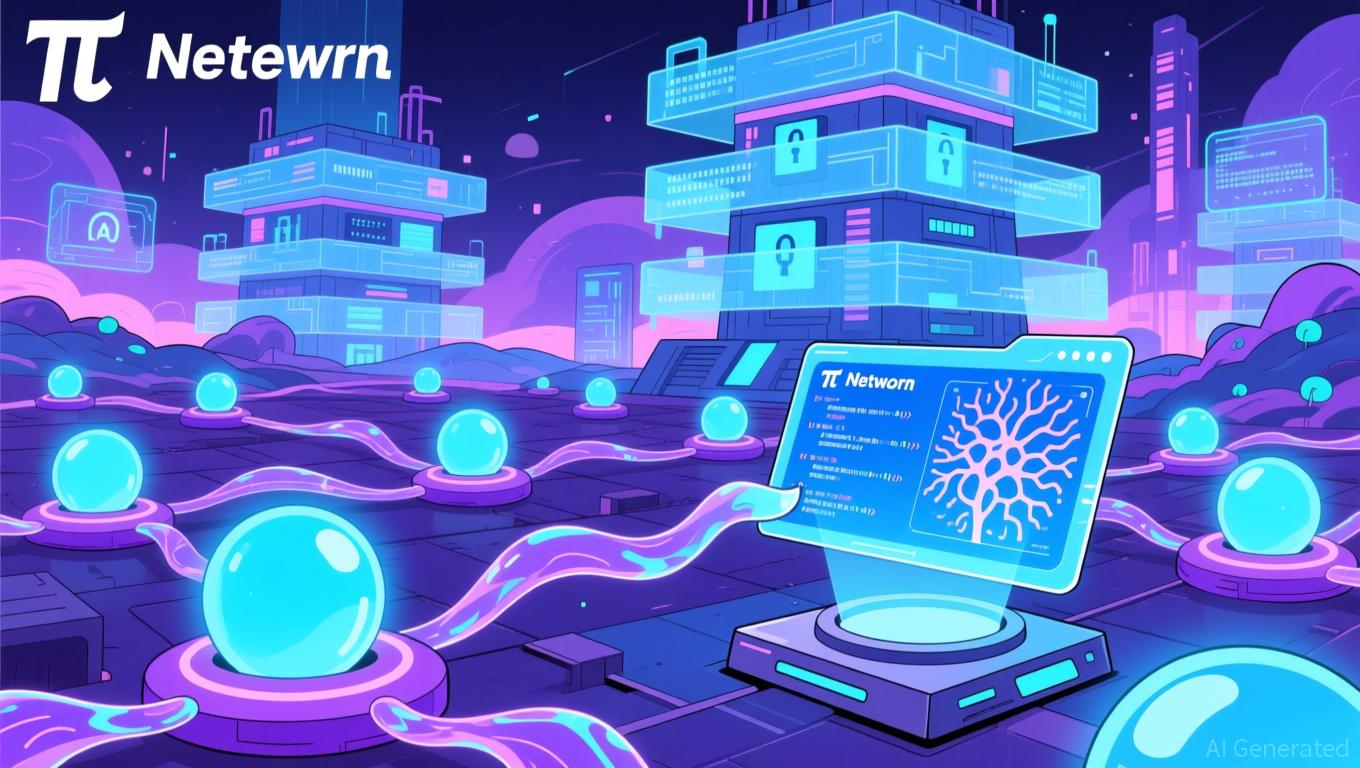Quantum Computing and Blockchain Converge in the Quest to Safeguard Future Technologies
- IonQ and IBM advance in DARPA's QBI program, targeting 2M qubits by 2030 and fault-tolerant quantum systems. - D-Wave reports mixed Q3 results but raises 2025-2026 revenue forecasts after $1.8M German contract and analyst optimism. - Belden and WISeKey develop quantum-safe networking/satellite solutions to protect infrastructure from future quantum threats. - Crypto market surges 30-34% post-shutdown resolution, with institutional interest in cross-border payment tokens like HBAR/XLM. - Blaqclouds and ra
Recent progress in quantum computing and blockchain is significantly altering the tech industry, bringing both new hurdles and promising prospects to the forefront.
At the same time,

Within blockchain infrastructure, organizations are focusing on quantum-resistant technologies. Belden Inc. has teamed up with ChicagoQuantum to create quantum-secure networking protocols, aiming to safeguard vital infrastructure from future quantum threats, as covered in
New initiatives are also broadening the blockchain landscape. Blaqclouds, Inc. has finalized the integration of Apollo ID, a decentralized identity solution for its Apollo Wallet and ZEUSx platforms, enabling encrypted on-chain KYC and NFT-based identity verification, as mentioned in
As quantum computing and blockchain continue to evolve together, the balance between computational advancements and cryptographic protection remains a central concern. While progress in quantum benchmarking and post-quantum encryption is promising, it also emphasizes the need to update current systems to prevent security gaps. The next few years are expected to bring increased collaboration among technology companies, government agencies, and researchers as they adapt to this rapidly changing environment.
Disclaimer: The content of this article solely reflects the author's opinion and does not represent the platform in any capacity. This article is not intended to serve as a reference for making investment decisions.
You may also like
UK’s Stablecoin Regulations Ignite Discussion: Balancing Progress and Security in Effort to Compete with US
- The Bank of England (BoE) announced a stablecoin regulatory framework with £20,000 individual and £10M business holding caps to mitigate redemption risks and ensure liquidity. - Systemic stablecoin issuers must hold 60% reserves in UK government debt and 40% in BoE non-interest-bearing accounts, with phased flexibility for new entrants. - The rules, open for consultation until February 2026, aim to balance innovation with stability while aligning with U.S. regulatory speed, despite industry concerns over

AI’s Bold Bet: Some Soar While Others Falter Amid Turbulent Tech Transformation
- AI sector volatility highlights divergent outcomes as firms adopt agentic AI systems, with SoundHound AI and Rightmove exemplifying contrasting success and risk. - SoundHound AI's Red Lobster partnership and margin improvements reduced risk perception despite high valuation, driving analyst optimism about enterprise AI adoption. - Rightmove's 25% stock plunge followed AI investment plans that slashed 2026 profit forecasts, reflecting investor skepticism toward short-term profitability trade-offs. - C3.ai
Bitcoin News Update: Nationalist Cryptocurrency Fraud Cons People Out of $6.5 Billion, Affecting 128,000
- Chinese "Cryptoqueen" Zhimin Qian faces UK sentencing for orchestrating a $6.5B Bitcoin Ponzi scheme targeting 128,000 victims, including elderly investors. - Her Lantian Gerui company used patriotic marketing and false 200% returns promises, with proceeds funding a £17,000/month London mansion and £6B in seized crypto assets. - UK authorities seized 61,000 BTC (worth $6B) and are pursuing asset recovery, as Qian's case highlights risks of unregulated crypto investments amid global regulatory crackdowns.

Pi Network’s Mainnet: Evolving from Smartphone Mining to an AI-Powered Blockchain Platform
- Pi Network's Testnet 1 achieves near-zero transaction failures, accelerating Mainnet v23 launch after successful high-volume stress tests. - Price jumps 3.5% as AI integration with OpenMind and decentralized computing prove scalability, while KYC streamlining boosts user onboarding. - Upcoming Mainnet will enable smart contracts and DeFi tools, but faces challenges including 10% price decline and only 296 active nodes currently operational.
